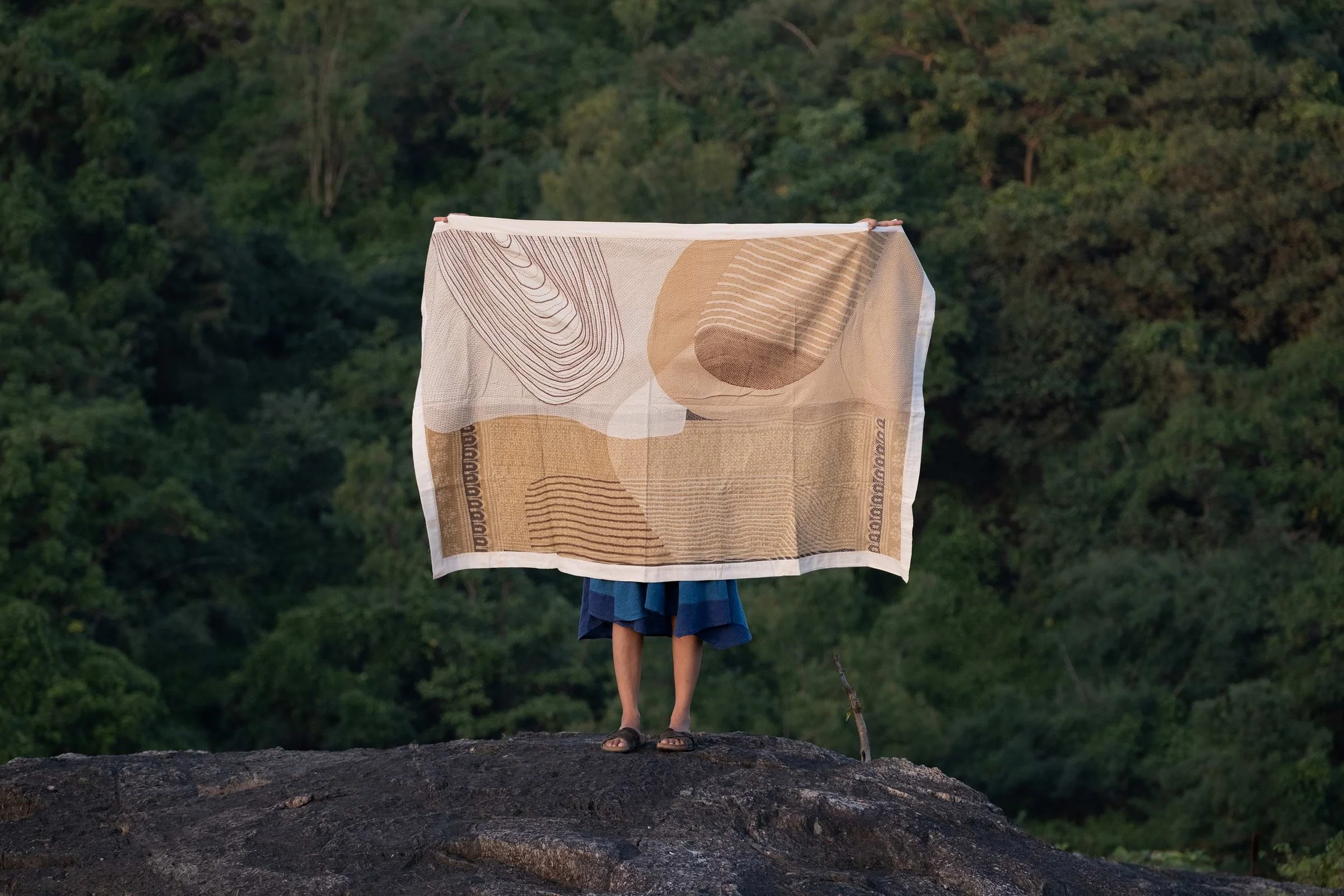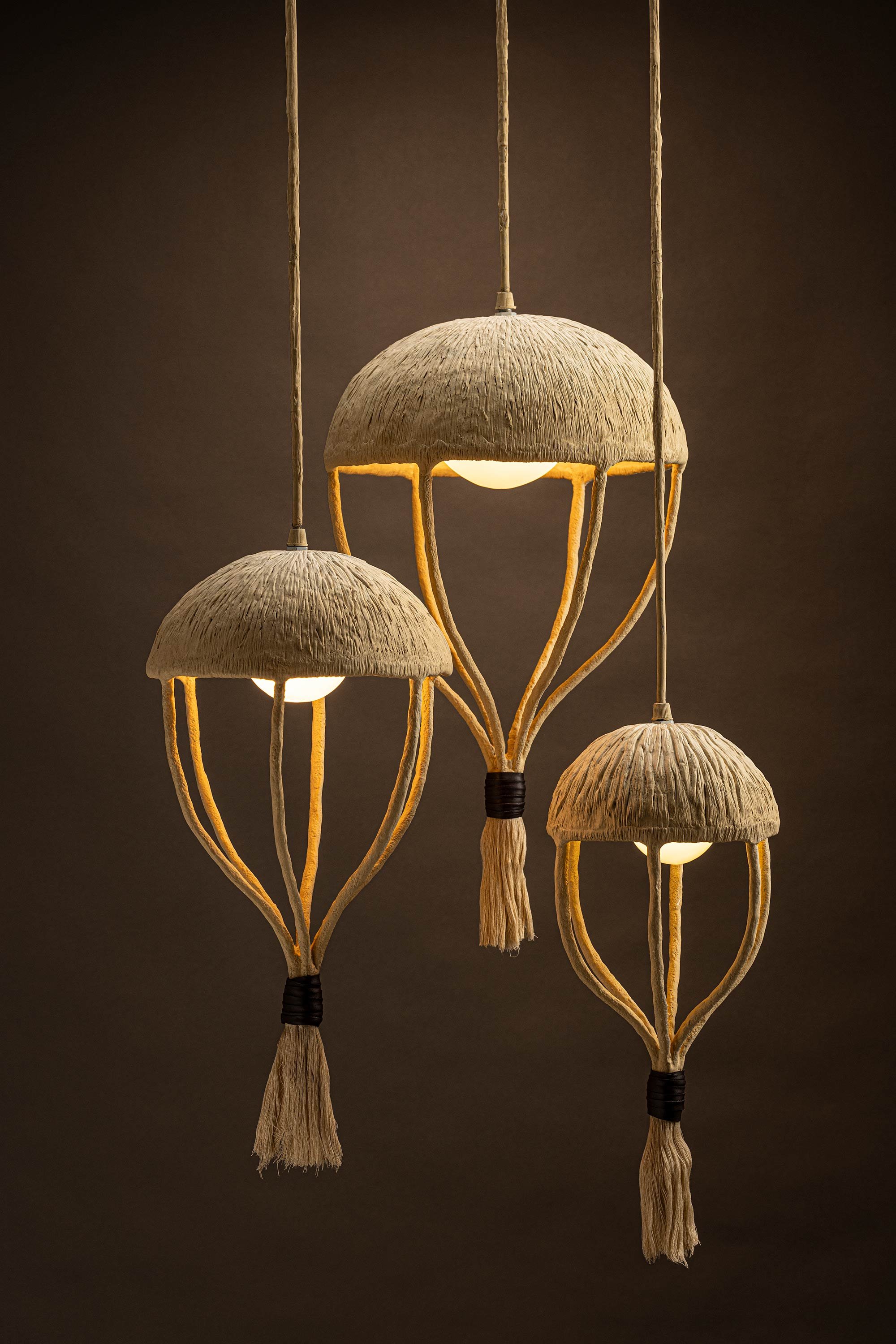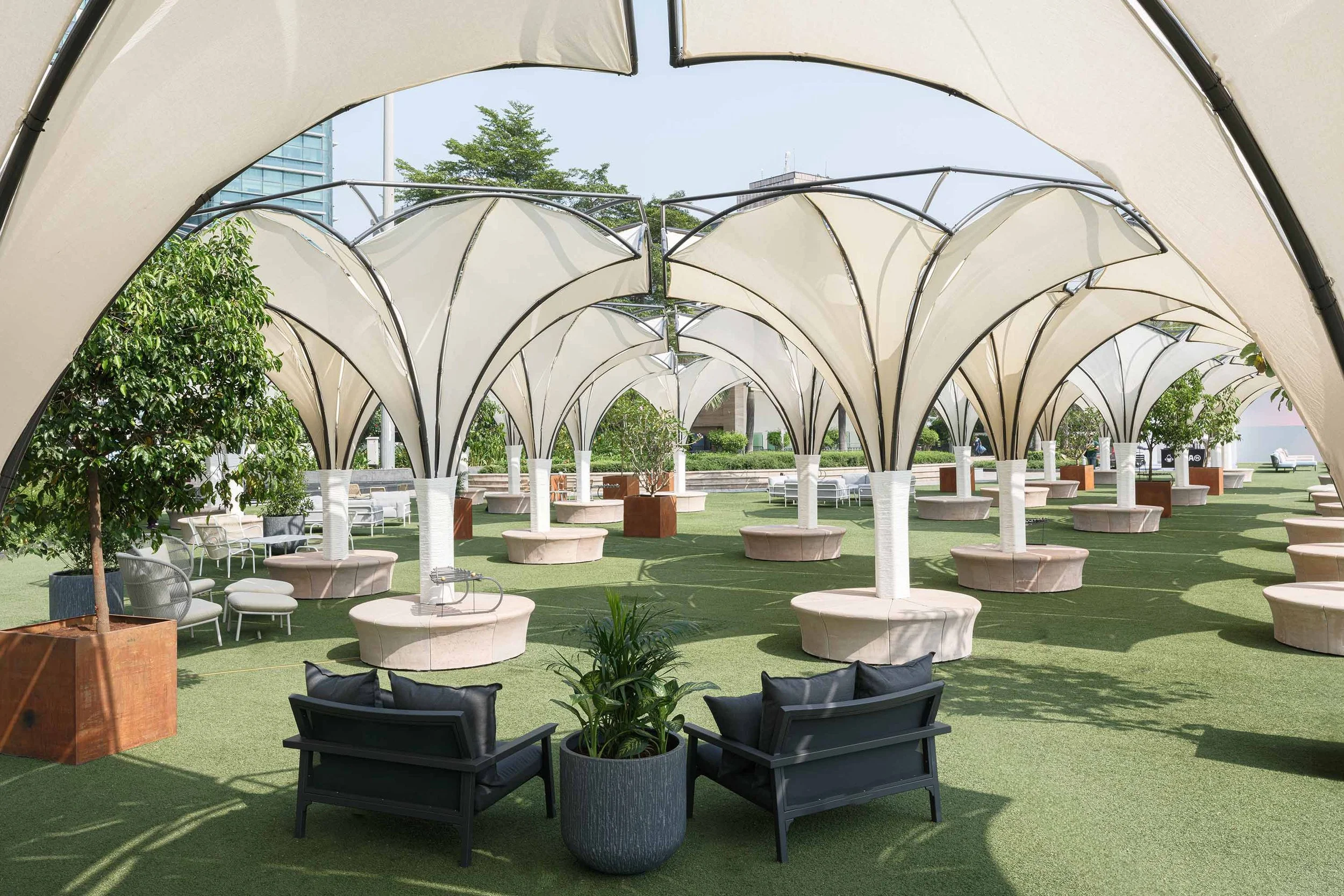Design Mumbai in Review
Image courtesy of AKFD
The inaugural edition of Design Mumbai aimed to capture the creative energy and consumer power of the world’s fifth biggest economy, bringing international and Indian brands and designers together for India’s first international contemporary design show
With economic growth and prosperity comes an appetite for design and an awareness of its benefits, or so the theory goes. Throw the pandemic and the related challenges of importing foreign goods into the mix and almost overnight there’s a new demand for locally designed and produced goods. In India, this demand supercharged the country’s design industry — and the resulting consensus was that the second most populous city in the world’s most populous country was ready for a platform to showcase its talent. Enter the inaugural Design Mumbai, a new fair created to foster cross-cultural dialogue and international exchange, by some of the minds behind 100% Design in the UK, Design Shanghai, Art Central in Hong Kong and Photo New York. The three-day show included an impressive line-up of speakers from various cities from across India and around the globe, and of the highly curated list of exhibitors, fifty percent were Indian brands. Below, we round up some of our highlights from the inaugural event.
AKFD
Multidisciplinary studio AKFD was founded by designer Ayush Kasliwal in 1997, and since then its Jaipur-based workshop has been utilising local, sustainable or repurposed materials to create products that combine technology and traditional craft. Its latest collection, Yasmine, is a collaboration with Cocoon Fine Rugs and was inspired by the ancient tales of Aladdin. The fabled flying carpet is reimagined with traditional Persian motifs, minimal structural forms and a sense of poetry.
Ek Kalakaar Designs
Designer Anurag Bhandari is passionate about sustainability. His studio is dedicated to the exploration of leftovers and offcuts — materials that would otherwise go to waste or landfill. His choice of eco-friendly materials paired with high-quality craft means timeless products that should stand the test of time. Given the studio’s dedication to reducing waste, it also provides a refurbishment service and can take on commissions with clients’ own waste or scraps.
Image courtesy of Ek Kalakaar
Industrial Playground
Founded by Mumbai-based designer Ajay Shah in 2008, Industrial Playground has become an outlet for his explorations in form, material and colour. Folded sheets of powder-coated metal and bulbous shapes made from fibre-reinforced plastic (FRP) all rendered in bright bold hues attest to Shah’s love of colour and graphic forms. These colourful pieces often find their way into interior projects by Shah’s eponymous design studio.
Image by Vihan Shah
Morii
Founded by Brinda Dudhat and Sonu Yadav in 2019, Morii is a textile design studio based in Gandhinagar, Gujarat. Having spent a semester in Japan on a university exchange programme, Dudhat was deeply inspired by the Japanese approach to design and how tradition is valued and integrated into daily life. The name Morii (derived from the Japanese word mori, meaning ‘forest’) signifies the studio’s reverence for nature. Working with some eighty women artisans from seven villages, the studio plays an important role in preserving several important heritage textile crafts unique to India, allowing women, often living in remote villages, to earn salary while working from home.
Image courtesy of Morii
Shailesh Rajput Studio
Husband-and-wife team Shailesh Singh and Mansi Mehta founded Shailesh Rajput Studio in Mumbai in 2015. Through COVID they started to experiment with easily sourced materials, specifically a non-toxic epoxy resin and wire mesh. From these they created a series of nature-inspired, organically shaped lights. The Bodhi Deep series, for example, is inspired by Bodhi seed pods and the Hindi word deep, meaning ‘light’. The studio has since branched out into producing larger pieces in sand-casted aluminium.
Image by Apoorvasalkade
Studio SAAR
Architects Ananya Singhal and Jonny Buckland’s Udaipur- and UK-based practice works across a variety of typologies. For Design Mumbai this year, Studio SAAR was commissioned to create an outdoor installation, a modular pavilion they named Srivan, inspired by the ancient Indian principles of nature conservation and Vedic culture. The project recalls the holistic ancient wisdom of Hinduism, which differentiates between great natural forests (Mahavan), sacred forests (Tapovan) and productive forests and groves (Srivan), and draws on Srivan’s traditional notions of productivity, wealth and shelter. More than 30 lily-shaped structures, with a metal and fabric canopy supported by a stone base, provided a shaded breakout area for visitors.
Image by Aman Alan
The Wicker Story
Founded in 2019 by Hyderabad-based architect Priyanka Narula, The Wicker Story is her attempt to define the future of design in an Indian context. Marrying technology and complex geometries with traditional Indian craft and local materials, The Wicker Story creates large-scale interior installations that are part-art, part-decoration, and are often functional with seating or lighting integrated. The studio’s methodology ensures their practice produces zero waste.
Text by Suzy Annetta
Image by Alan Jose Thomas







